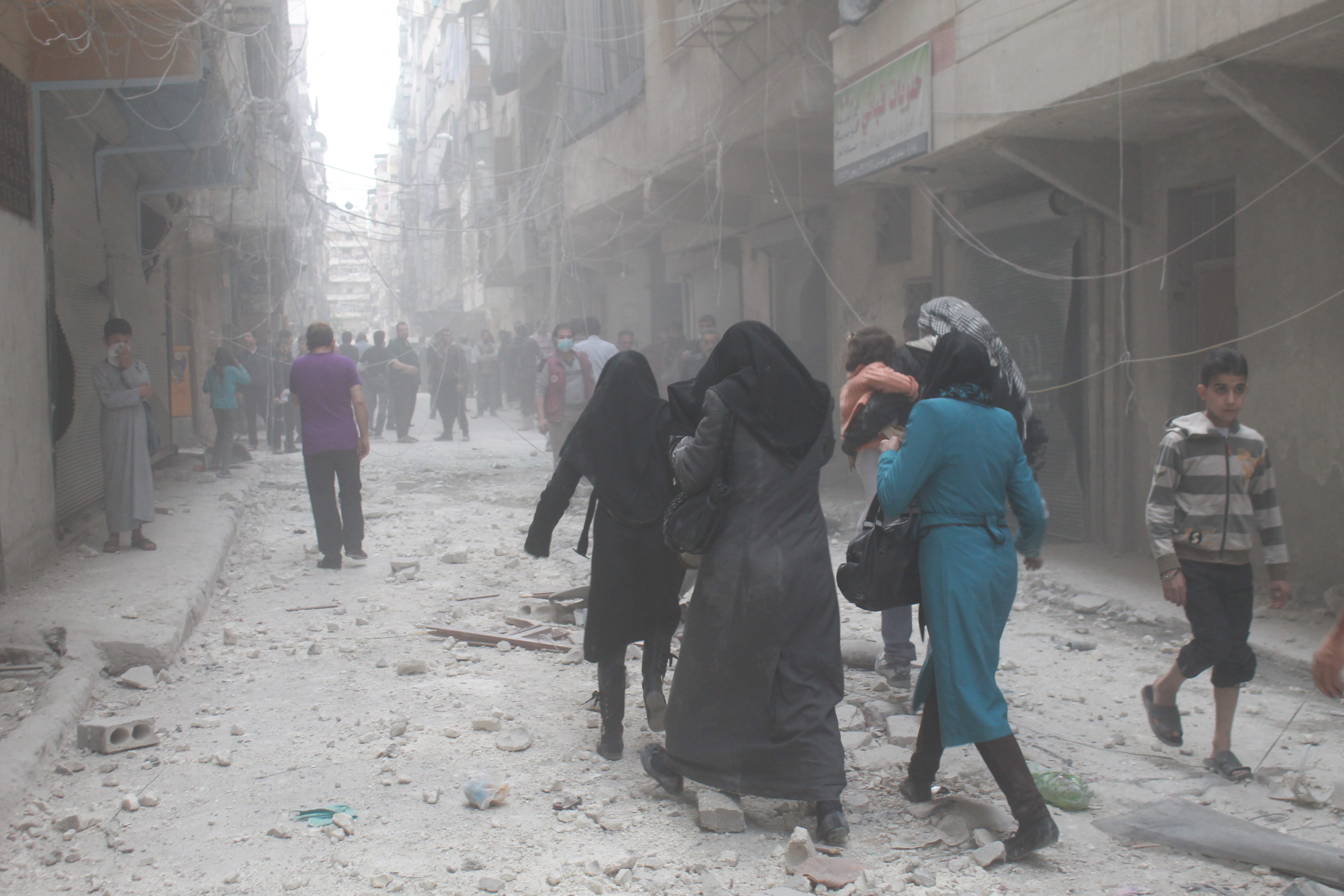Waiting to Die

The terrifying sound of an explosion woke us up on July 21, 2012. It was the first day of Ramadan.
Our flat shook as if hit by an earthquake and dust filled the rooms. It was our first close encounter with a mortar shell.
My parents, siblings and I gathered together. My mother broke down in tears, fearing for the safety of my brother and uncle. Both had slept on our building’s rooftop that night.
She was worried they had been injured or worse, but moments later they walked through our door, bewildered but unharmed.
We heard our neighbours screaming and my father rushed out to see what was wrong. It turned out a mortar had hit our neighbour Abu Rashid’s flat, destroying a wall and turning his kitchen into a pile of rubble.
Thankfully, the missile had not exploded and no one was hurt.

“This is what caused all this havoc,” said Abu Rashid, picking up the unexploded mortar shell. “Thank God we are all alive and well.”
The shell was passed from one person to another. When I picked it up, it was so hot I couldn’t bear to hold it.
Our neighbours began discussing what had just happened. One mused over how much more damage it would have caused if it had exploded. Another theorised that it had hit our neighbourhood of al-Sabeena, in the Damascus countryside, by mistake.
I didn’t want to hear what they were saying, so I tried to ignore them. I watched Abu Rashid try to salvage some clothes and belongings from underneath the rubble.
The day passed slowly as we waited for sunset and the call for prayer so that we could break our fast. Moments after we had begun eating, another explosion rang out nearby. I had been terribly hungry, but suddenly lost my appetite.
My brother went out to find out the source of the explosion. A landmine had detonated, killing an opposition fighter and four civilians.
That was the worst day I had ever experienced in my life. Its events left me scarred and terrified of what tomorrow might bring.
We spent the whole month of Ramadan living in fear.
Military aircraft circled over Damascus countryside, launching barrages of missiles on residential areas. Whenever I heard a shell being launched, I thought that this time it was coming for us.
We waited for our turn to die.
As time passed, matters became worse when basic services such as water and electricity were cut off. Bread became scarce, so on many occasions we went without.
Our neighbourhood gradually turned into a ghost town. All you could hear was the sound of bullets and missiles, drowning out the call to prayer.
It was a very difficult time, and we finally decided to flee.
But the bloodshed didn’t end in the Damascus countryside. A few days after we arrived in the city Kfar Nabel, the regime carried out a massacre that claimed many lives.
I am still waiting for my turn to die. I do not know whether I will be killed by a barrel bomb or by a Russian missile. But what I fear most is losing a member of my family.
Each time I hear a shell or missile being launched, my heart skips a beat.
Then I realise that I have survived but somewhere nearby others are now lying dead amongst the rubble.
Reem al-Hassan is the pseudonym of a Damascus Bureau contributor from Idlib. The 19-year-old was forced to abandon her studies when the revolution started. She now works as a newsreader at the Radio Fresh station in Kfar Nabel.
Read the Arabic version of this article here
